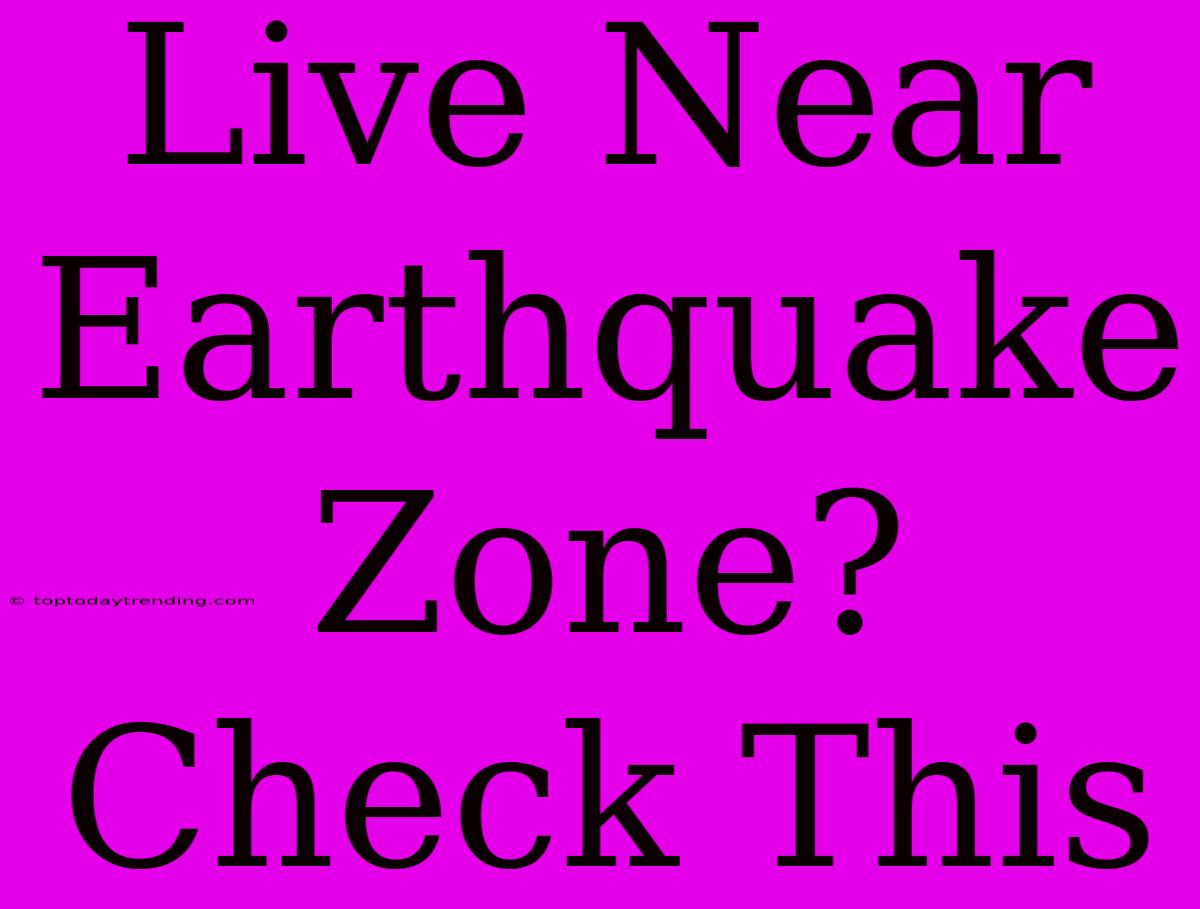Live Near an Earthquake Zone? Check This!
Living in an earthquake-prone area can be thrilling, but it also demands preparedness. Earthquakes can strike without warning, potentially causing significant damage and injuries. This is why it's crucial to be informed and take steps to mitigate risks. Here's a comprehensive guide to staying safe and prepared in an earthquake zone:
Understand Your Risk
- Know Your Zone: Identify your location on an earthquake risk map. This will tell you the likelihood of experiencing a strong earthquake in your area.
- Study Your Home: Assess the structural integrity of your home. Check for potential hazards like heavy furniture, hanging objects, or fragile items that could become projectiles during an earthquake.
- Research Local Hazards: Be aware of specific risks in your area, such as landslides, tsunamis, or liquefaction, which can be triggered by earthquakes.
Prepare Your Home
- Secure Your Space: Anchor heavy furniture, appliances, and mirrors to the wall using straps or brackets. This prevents them from tipping over during a tremor.
- Create Safe Zones: Identify strong, sturdy areas in your home where you can take shelter during an earthquake, such as under a sturdy table or desk.
- Keep Emergency Supplies: Stock a kit with essential items like water, non-perishable food, a first-aid kit, a flashlight, a battery-powered radio, and extra batteries. Ensure you have enough supplies to last for at least 72 hours.
- Practice Your Escape Plan: Map out evacuation routes and practice them regularly with your family. Include designated meeting points outside your home.
Before, During, and After an Earthquake
- Before an Earthquake:
- Stay informed about earthquake preparedness through local news, government websites, and community resources.
- Participate in community drills to practice earthquake safety measures.
- Learn CPR and basic first aid to provide assistance if needed.
- During an Earthquake:
- Drop, Cover, and Hold On: If you are indoors, drop to the ground, cover your head and neck with your arms, and hold on to a sturdy piece of furniture until the shaking stops.
- Stay Away from Windows: Stay away from windows and anything that could fall.
- If Outdoors: Stay away from buildings, power lines, and trees. Find an open area and stay there until the shaking stops.
- After an Earthquake:
- Check for Injuries: Assess yourself and others for injuries. Provide first aid if needed.
- Turn Off Gas and Electricity: If you smell gas or see any electrical hazards, turn off gas and electricity.
- Listen for Updates: Stay informed about the situation by listening to the radio or checking local news sources.
- Be Aware of Aftershocks: Aftershocks are common after a major earthquake. Be prepared for more shaking and follow safety guidelines.
Additional Tips
- Stay Informed: Subscribe to emergency alerts from local authorities and keep your contact information up-to-date.
- Communicate with Others: Share your earthquake preparedness plan with family, friends, and neighbors.
- Be Proactive: Regularly check your emergency supplies and update them as needed.
Remember, being prepared is the best way to stay safe during an earthquake. By taking these steps, you can increase your chances of surviving an earthquake and minimizing potential damage to your home and belongings.

